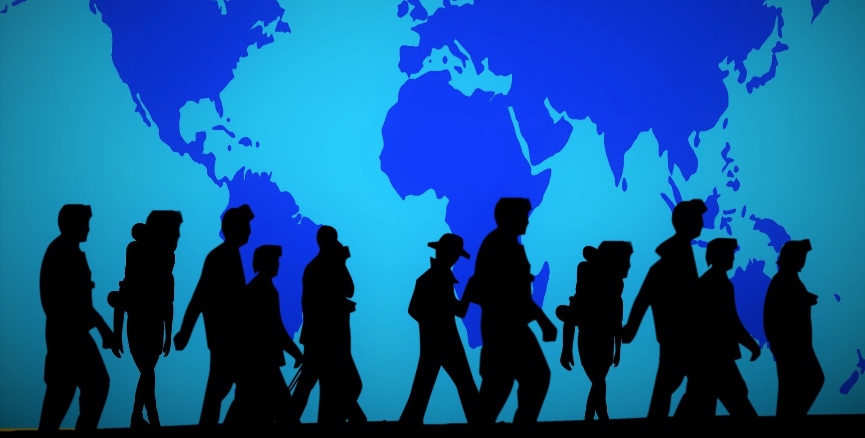The Canadian Green New Deal movement is picking up steam, as prominent activists join forces with over 80 organizations to demand radical change.
On June 11, Indigenous lawyer Pam Palmater and journalist Naomi Klein were two of the speakers at a Green New Deal town hall in Toronto. More town halls are planned in the next few weeks, with an open invitation to organize events to anyone committed to building the movement.
Modeled after the demand for a Green New Deal in the U.S., the Canadian version aims to build a mass movement that can pressure government to take bold actions.
Instead of implementing temperate solutions such as the carbon tax, the Canadian Green New Deal calls for an economy that redistributes wealth and resources to benefit the vast majority of the population while drastically reducing emissions.
That translates into transformative action on “systems of transit, energy, housing, agriculture, and public services” as well as addressing migrant justice.
“The migrant labour piece needs to be central in that,” says Karen Cocq, an organizer with the labour-advocacy group Fight for $15 and Fairness.
Alongside multiple unions such as CUPE, the Green New Deal coalition includes labour advocacy groups including Migrant Rights Alliance for Change.
Cocq emphasizes solidarity with Indigenous peoples in Canada and abroad who have been displaced due to corporate extractivism, leading to disruption and forced migration.
Migration due to environmental factors
According to the United Nations, the degradation of the environment plus the effects of climate change are key drivers of migration (along with violent conflicts).
Between 2008 and 2016, alone, more than 227 million people across the world were displaced due to extreme weather events.
According to the United Nations, forecasts on “environmental migrants” vary between 25 million and one billion people”by 2050.
Cocq says that environmental issues are inextricably bound with other crises of capitalism, and require comprehensive solutions that fundamentally change our society.
“The climate crisis is created by an economic system that prioritizes profit-making, and commodification of natural resources,” she says.
For the benefit of a tiny elite, the same system uproots Indigenous populations, exploits workers and creates massive wealth disparities, she adds.
Canada’s role in overseas conflict and environmental degradation
Over 50 per cent of publicly listed mining companies across the world are headquartered in Canada.
However, the interests of Canadian mining companies overseas — supported by the federal government — have been linked to environmental damage and human rights abuses including murder and sexual violence.
York University’s Osgoode Hall Law School released a report in 2016 linking 28 Canadian mining companies to 44 killings and hundreds of injuries in Latin America from 2000-2015.
Canada’s involvement in Honduras is a particularly chilling example. Canadian mining companies profited off the 2009 military coup, which overthrew a democratically elected government that had placed a moratorium on new mining projects.
The coup — tacitly endorsed by Canada — was followed by brutal repression, as civil society and activists resisted the “open for business” policies.
The ensuing violence resulted in displacement of people who have sought migration to safer countries like the U.S. and Canada (and faced vilification in the process).
From mining interests overseas to extracting tar sands at home, Cocq sees the Canadian state as a facilitator of corporate profiteering that disrupts Indigenous populations and pollutes the environment.
“The Canadian government enables that because they are constantly seeking to appease the interests of our industry,” she says.
Justice for migrants
Cocq says that capitalism’s exploitation of labour particularly targets immigrants including so-called migrant workers.
“The immigration system in Canada is designed to produce workers that don’t have access to the same rights and the same equality as other workers,” she says, referring to the multiple immigrant streams that create arbitrary distinctions.
While “skilled workers” are granted permanent resident status on arrival, care workers and farm workers’ temporary status deny them basic rights such as labour law protections, health care and the ability to change employers,.
“The role of immigration and migrant work as a tool for exploiting labor for the benefit of a few at the expense of the many is really central to that economic model,” Cocq says.
A radical Green New Deal
The Canadian Green New Deal is premised on the requirement of “rapid, far-reaching and unprecedented changes in all aspects of society,” as warned by the UN’s Intergovernmental Panel on Climate Change.
In other words, there is no choice but to take bold action — and to transform the way the Canadian government functions.
“We need to be cutting emissions drastically, and transitioning away from the fossil fuel economy,” Cocq says. “And the Canadian government is doing the opposite, and Canadian industry is a large part of the reason why.”
“Because [capitalism] is a highly exploitative system, that is a fundamental part of what is driving this problem to begin with. And so if we aren’t appropriately addressing the exploitation of migrants, we are never really going to get to the heart of [the problem].”
Zaid Noorsumar is rabble’s labour beat reporter for 2019, and is a journalist who has previously contributed to CBC, The Canadian Press, the Toronto Star and Rankandfile.ca. To contact Zaid with story leads, email zaid[at]rabble.ca.
Image: kai kalhh/Pixabay



